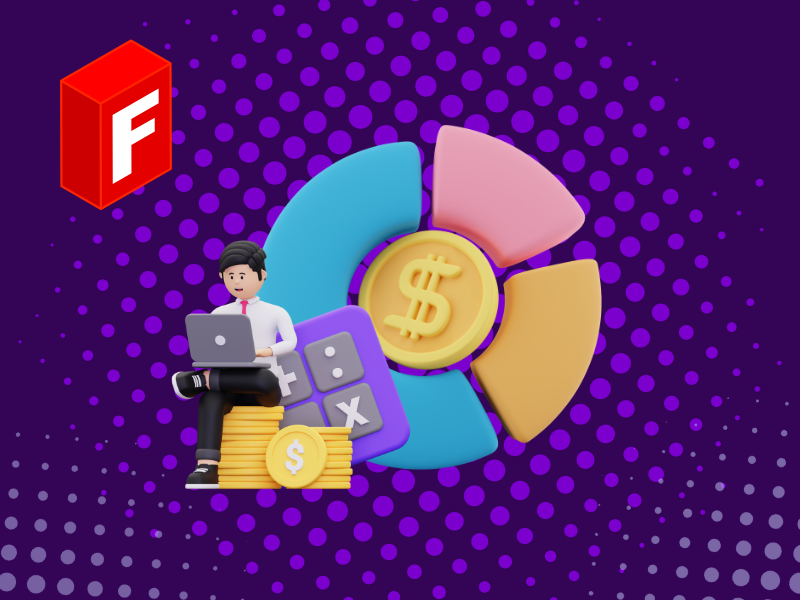
Best Budgeting Apps for Students | 15 Options | Discover the Best Budgeting Apps for Students: A Guide to Financial Freedom
Budgeting isn’t just about saving money; it’s about making your money work for you, especially when you’re a student dealing with tuition, textbooks, and the trappings of campus life. The right budgeting app can transform your smartphone into a personal finance manager. With that in mind, we’ve curated a list of the top 15 budgeting apps designed to help students steer their financial ship with confidence. Whether free or offering a trial, each app comes with a set of features aimed at simplifying budget management. Dive in to find your perfect financial companion.
1. Mint
Offerings: Free to use
Mint is widely regarded as one of the best budgeting tools available, offering a comprehensive overview of your financial situation. From creating custom budgets to tracking your spending automatically by linking your bank accounts and credit cards, Mint does it all without costing a penny.
Pros: User-friendly interface, automated expense tracking, and personalized insights.
Cons: Some might find the constant advertisements for financial products to be intrusive.
2. PocketGuard
Offerings: Free with an optional premium upgrade
PocketGuard simplifies budgeting by showing how much disposable income you have after accounting for bills, groceries, and other recurring expenses. It places a strong emphasis on preventing overspending.
Pros: Easy to see available spending money, can negotiate lower bills on your behalf.
Cons: Features are limited in the free version.
3. YNAB (You Need A Budget)
Offerings: 34-day free trial
YNAB stands out for its proactive approach to budgeting, emphasizing giving every dollar a job. Its method is designed to help users gain total control of their finances and reduce stress about money.
Pros: Great for debt paydown strategies and long-term financial planning.
Cons: After the free trial, there’s a subscription fee.
4. Wally
Offerings: Free
Wally invites students to take control of their spending by offering insights into where their money goes. It supports virtually all currencies, making it an excellent option for international students.
Pros: Intuitive interface and privacy-focused.
Cons: No web version available; app only.
5. Goodbudget
Offerings: Free version available
Goodbudget takes the envelope system digital, helping users allocate their funds to various spending categories. It’s ideal for students who prefer a hands-on approach to budget management.
Pros: Supports shared budgets, which is great for roommates.
Cons: The free version limits the number of budget envelopes.
6. Personal Capital
Offerings: Free
Personal Capital is perfect for students who want to start thinking about investing in addition to budgeting. It offers tools for tracking spending, net worth, and investment performance.
Pros: Excellent for a holistic view of finances and investments.
Cons: More suited for those with a focus on investing.
7. Albert
Offerings: Free basic use; premium services available
Albert is like having a personal finance advisor in your pocket. It not only helps with budgeting but also offers insights into savings and investments.
Pros: Personalized financial advice.
Cons: Some advanced features require a subscription.
8. Mvelopes
Offerings: 30-day free trial
Mvelopes brings the traditional envelope budgeting method to your smartphone, enhancing it with digital convenience. It’s aimed at helping users build healthy spending habits.
Pros: Direct synchronization with bank accounts for real-time budgeting.
Cons: Requires a subscription after the trial period.
9. Spendee
Offerings: Free version available
Spendee boasts attractive visualizations and an intuitive interface, making budget tracking less of a chore. Its features include shared wallets, perfect for managing expenses with friends.
Pros: Beautiful design, easy expense tracking.
Cons: Premium features are behind paywall.
10. EveryDollar
Offerings: Free version available
EveryDollar follows Ramsey Solutions’ zero-based budgeting system, encouraging users to allocate every dollar when planning their monthly budget, making it great for focused financial planning.
Pros: Simple, effective budgeting with clear categories.
Cons: Limited features in the free version.
11. Tiller Money
Offerings: 30-day free trial
Tiller Money automates your budget spreadsheets in Google Sheets and Microsoft Excel, combining the flexibility of spreadsheets with automated transactions and balances.
Pros: Highly customizable, appeals to spreadsheet enthusiasts.
Cons: Requires a bit of setup and spreadsheet know-how.
12. Honeydue
Offerings: Free
Honeydue is tailored for couples, making it an excellent choice for those managing finances with a partner. It features shared budgets and reminders for bills and other financial obligations.
Pros: Supports both shared and individual accounts.
Cons: Privacy concerns for those who prefer keeping finances separate.
13. Fudget
Offerings: Free
Fudget adopts a no-frills approach to budgeting, ideal for students who want a straightforward tool for tracking income and expenses without complex settings or categories.
Pros: Easy to use with a simple design.
Cons: Lacks the detailed tracking and analytics of other apps.
14. Simplifi by Quicken
Offerings: 30-day free trial
Simplifi by Quicken offers a personalized experience in tracking spending, setting savings goals, and monitoring cash flow, designed to provide a comprehensive overview of your finances.
Pros: User-friendly, comprehensive financial planning.
Cons: Subscription required after the trial.
15. Zeta
Offerings: Free
Zeta is designed for managing joint finances while also tracking individual goals, making it suitable for couples or friends sharing financial responsibilities.
Pros: Features tailored for shared finances, including a joint account option.
Cons: Focus on couples may not suit all users.
In the vast sea of budgeting apps, finding the one that suits your lifestyle, needs, and financial goals is key to staying on top of your finances. Whether you’re looking for an app that simply tracks your spending or one that offers in-depth financial planning, there’s an option out there for every student. Remember, the best budgeting app is the one you actually use, so pick the one that resonates with you and start paving the way to financial literacy and freedom!


